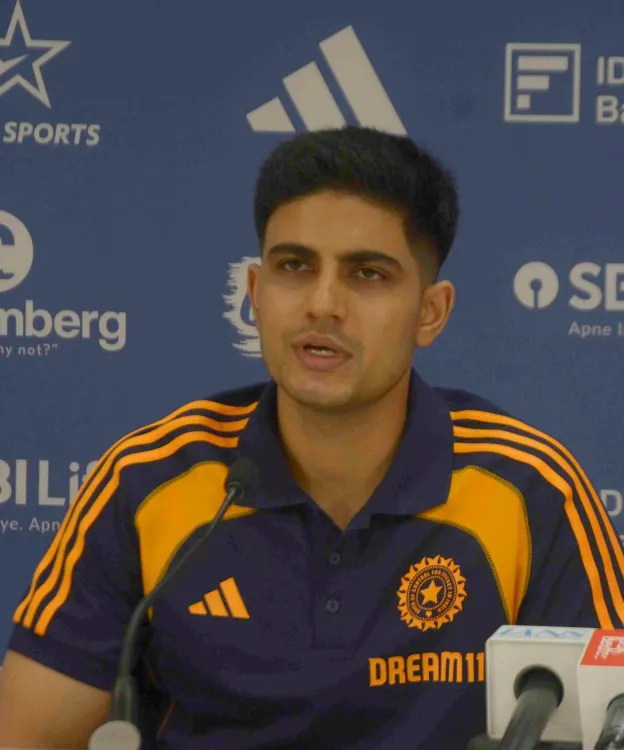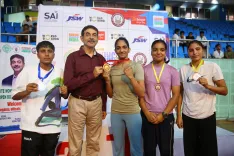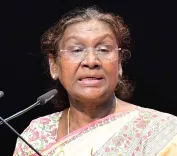Can Shubman Gill Emerge as a Successful Captain for India?

Synopsis
Key Takeaways
- Shubman Gill is seen as a promising leader for Indian cricket.
- A strong sports culture is essential for Olympic success.
- Support for young athletes is crucial for national progress.
- Vijayan Bala emphasizes the importance of grassroots development.
- Independent decision-making is key for Gill's growth.
New Delhi, July 1 (NationPress) As the Indian cricket team gears up for the second Test against England in Edgbaston, esteemed sports writer Vijayan Bala expressed his confidence in captain Shubman Gill emerging as a successful leader, provided he receives the necessary support.
Gill faced a challenging start to his captaincy in Leeds, where he scored a remarkable 147 in India's first innings but ultimately saw his team lose by five wickets, trailing 0-1 in the five-match series.
Following the retirement of batting legends Virat Kohli and Rohit Sharma last month, Gill was appointed as India's Test captain, with wicketkeeper-batter Rishabh Pant as his vice-captain.
“There’s a lot of concern among fans regarding the absence of Kohli, Sharma, and Ashwin. However, it’s crucial to shift our focus to the next generation. Cricket continues to thrive despite the retirement of greats. Shubman Gill is an outstanding batsman and, with the right encouragement, he will undoubtedly lead India to success,” Bala told IANS on Tuesday.
“He needs to make independent decisions without any fear. Over time, this will improve. Let’s remember that India is rich in talent across all formats of cricket. We should not judge his capabilities based on his performance in England but rather give him time to develop. This new era has the potential to surpass previous ones,” he added.
Bala, an author of seven books focusing on sports, particularly cricket and the Olympics, emphasized the need for a stronger sports culture in India for enhancing Olympic performance.
“The lack of a sports culture is a major reason for India not winning enough Olympic medals. To change this, we must start at the grassroots level. Schools, especially those affiliated with CBSE and other boards, should have proper facilities, coaches, and dedicated physical education teachers to nurture young talent,” he stated.
“Additionally, we need dedicated sports teachers to identify and train talent across various sports. Such initiatives at the school level should lead to exposure at state, university, and national levels, ultimately creating a robust sports culture that can significantly increase our medal tally,” he remarked.
Reflecting on his first book, 'Indian Test Cricket - A Statistical Digest 1932-1974', written at age 23, Bala revealed that his passion for cricket statistics fueled his journey as a sports author.
“I've adored cricket stats since I was eight. It was music to my ears. Eventually, I gathered data and was appointed by BCCI as their east zone representative in their statistical committee at 23. I realized there was no comprehensive book on Indian Test cricket stats, so I set to work,” he explained.
Having taught English and engaged in co-curricular and sports activities for over four decades in prestigious schools, Bala shared insights from his recent books ‘India’s Olympic Medal Winners (Paris 1900 - Paris 2024)’ and ‘History and Stars of the World's Greatest Sporting Event: From Athens 1896 to Paris 2024’, which highlight numerous sports legends.
“The last two books I published focus on the Olympics, released shortly after the games. The first one details India’s Olympic medal winners from Norman Pritchard in 1900 to the anticipated 2024 Paris games, featuring interviews and statistics. The second book covers all modern summer Olympics, with detailed accounts of each event and 82 exceptional athletes highlighted,” he said.
Regarding his next project, Bala expressed a desire to write about sports broadcasting, an area he’s been involved in for nearly five decades.
“My upcoming book will focus on sports broadcasting, an area I’ve engaged with for 48 years. Recently, I covered 24 hockey matches over 12 days in Hyderabad. I aim to address both challenges and positives in Indian sports broadcasting to encourage higher quality broadcasters in the future. It’s still in the planning stages, but I hope to publish it within 3-4 months,” he concluded.








